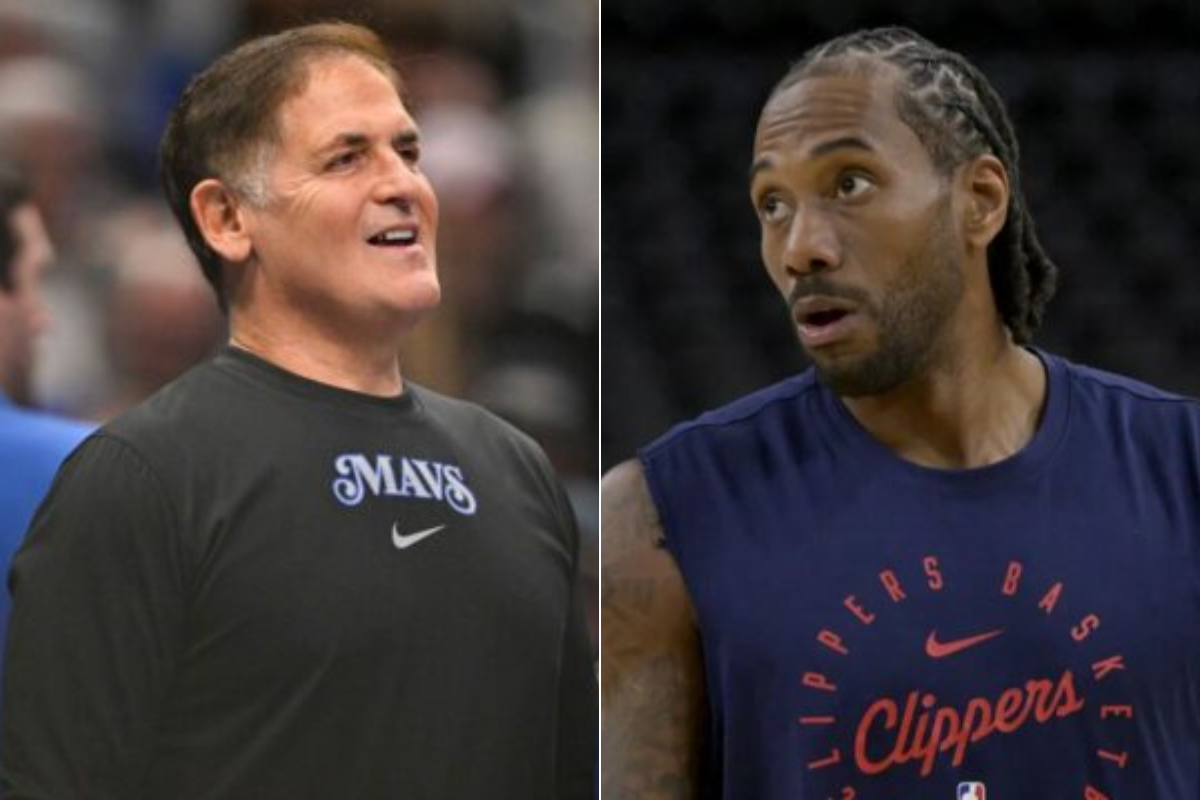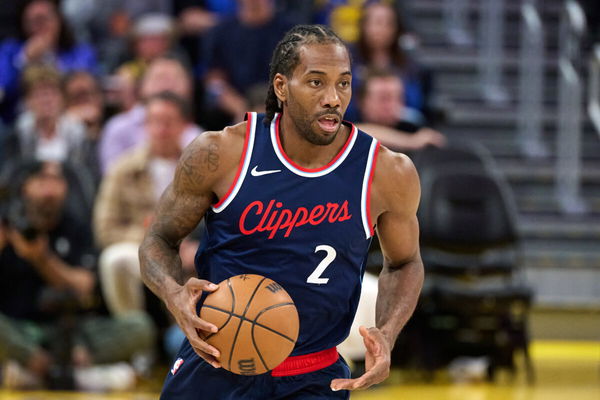
Imago
Image Credits: Imagn

Imago
Image Credits: Imagn

Imago
Image Credits: Imagn

Imago
Image Credits: Imagn
The NBA’s probe into the Kawhi Leonard–Aspiration scandal has put both the Clippers and the league under an uncomfortable spotlight. Given that the same law firm that covered the Donald Sterling scandal leads the ongoing investigation, the league has signaled just how serious potential CBA violations could be. At issue is a $28 million endorsement deal with the now-bankrupt company, coupled with $20M in stocks, that some believe doubled as a backdoor incentive to keep Leonard in Los Angeles. While reports have swirled around Steve Ballmer’s role and whether the Clippers’ owner had knowledge of the arrangement, not everyone sees it as the smoking gun it appears to be. One influential NBA voice argues the premise itself doesn’t add up.
Watch What’s Trending Now!
Former Mavericks owner Mark Cuban, on an appearance on the Road Trippin Podcast, dismissed the idea that Ballmer knowingly compromised the franchise over Leonard’s contract. “The scammers are where all the blame should start,” Cuban said, directly framing the investigation as misplaced. “I just don’t see Steve giving up $50 million and risking his entire reputation, integrity, and franchise.”
He elaborated, pointing to his own experience analyzing corporate collapses: “I spent maybe seven minutes reading what was written about this because I’d seen all this before…if you’ve watched as many episodes of American Greed as I have, you know the scammers always get caught.” To Cuban, the focus on Ballmer is a distraction; the real culpability lies with Aspiration’s internal failures, not with the Clippers’ leadership. But Mark didn’t stop there. And he emphasized just how unthinkable it would be for an owner to blatantly violate league rules in this way.
“Even rich guys can be stupid,” he admitted, but quickly undercut the idea that Ballmer would risk the franchise over side payments. “In an NBA board governor’s meeting, it’s like m—– to…violate the CBA like that.” That framing underscores his point: within ownership circles, tampering with contracts isn’t just a fineable misstep; it’s reputational suicide. To Cuban, the theory that Ballmer would jeopardize billions invested in the Clippers’ future, from Kawhi’s deal to the $2 billion Intuit Dome, over a backroom arrangement “doesn’t even make sense.”

USA Today via Reuters
Jun 12, 2024; Dallas, Texas, USA; Dallas Mavericks minority owner Mark Cuban walks off the court after their loss against the Boston Celtics in game three of the 2024 NBA Finals at American Airlines Center. Mandatory Credit: Kevin Jairaj-USA TODAY Sports
Cuban’s dismissal stands in sharp contrast to Pablo Torre’s reporting, which paints a more complicated picture of the financial and timing overlaps. Torre’s latest reporting has uncovered documents that reveal that on December 6, 2022, Clippers minority owner Dennis Wong invested approximately $1.99 million into Aspiration, which was already facing financial turmoil. Just nine days later, on December 15, Aspiration made a delayed $1.75 million payment to Leonard, fulfilling part of his $7 million annual endorsement deal. This timing raises questions about the nature of the investment and its potential connection to Leonard’s compensation. The coincidence of Wong’s investment and Leonard’s payment, amid Aspiration‘s financial struggles, has intensified scrutiny over the legitimacy of the endorsement deal.
Cuban’s skepticism highlights why this investigation may carry less weight than headlines suggest. With Leonard still under contract, Ballmer having already poured billions into the Clippers’ future, and the league navigating new multi-billion-dollar media deals, the incentives to overstate the scandal are limited. Meanwhile, Leonard has remained silent, leaving a cloud over both his legacy and the Clippers’ pursuit of credibility.
Lessons from Cuban on Kawhi Leonard, the Clippers, and the CBA
Mark Cuban’s argument reframes the controversy: the real issue isn’t the actions of individual owners but the structural vulnerabilities that allowed the Aspiration payments and minority-owner investments to intersect. For the NBA, this signals a need to scrutinize the mechanisms behind third-party endorsements rather than assuming intent to skirt the CBA. The investigation, in Cuban’s eyes, risks targeting the wrong party while missing systemic issues.

Imago
Apr 13, 2025; San Francisco, California, USA; LA Clippers forward Kawhi Leonard (2) brings the ball up court against the Golden State Warriors during the third quarter at Chase Center. Mandatory Credit: Robert Edwards-Imagn Images
The incident exposes gaps in oversight at both the team and league levels. Even in the absence of malice, the alignment of financial flows (Wong’s minority investment, Aspiration‘s delayed payment to Leonard) illustrates how easily complex transactions can trigger questions about compliance. By tightening rules and reporting standards for endorsements and equity deals involving players, the NBA can safeguard team integrity without unfairly penalizing owners who act responsibly.
Cuban highlights that owners like Ballmer have immense incentives to protect their franchises, making it unlikely they would jeopardize billions for a relatively small endorsement. The NBA could use this lesson to focus on monitoring external actors and reinforcing internal policies, rather than overextending investigations toward executives whose financial interests are aligned with league rules. It’s a reminder that structural safeguards, rather than punitive measures against cautious owners, may be the most effective way to prevent future controversies.

